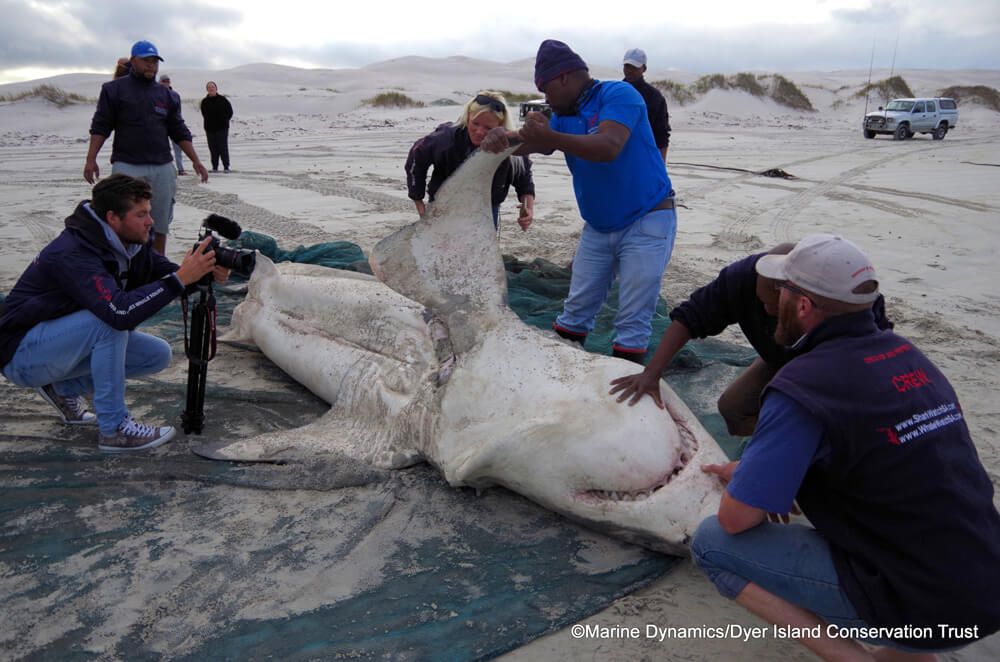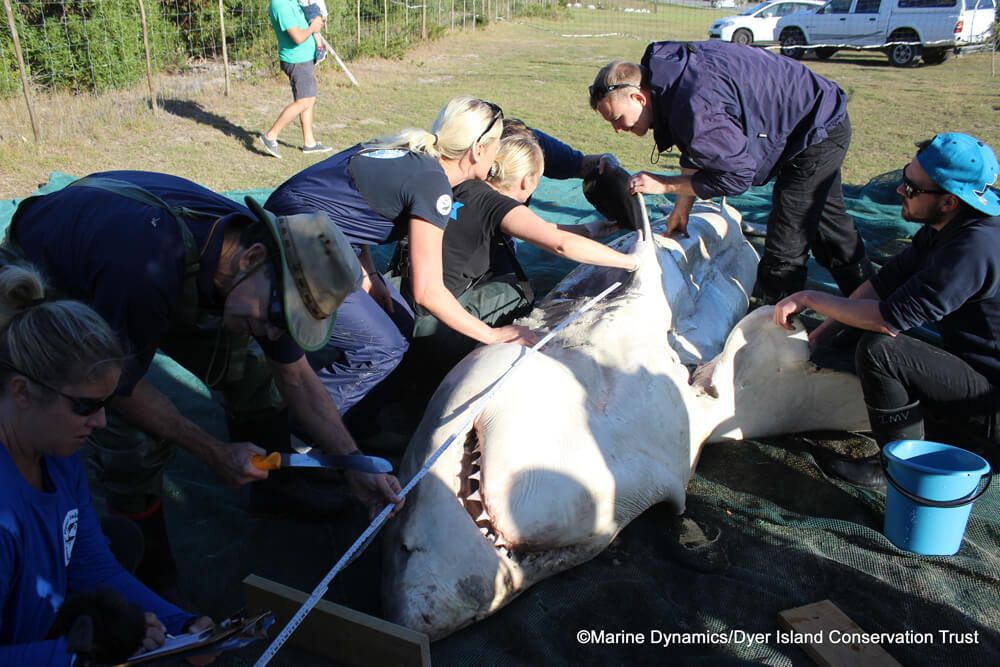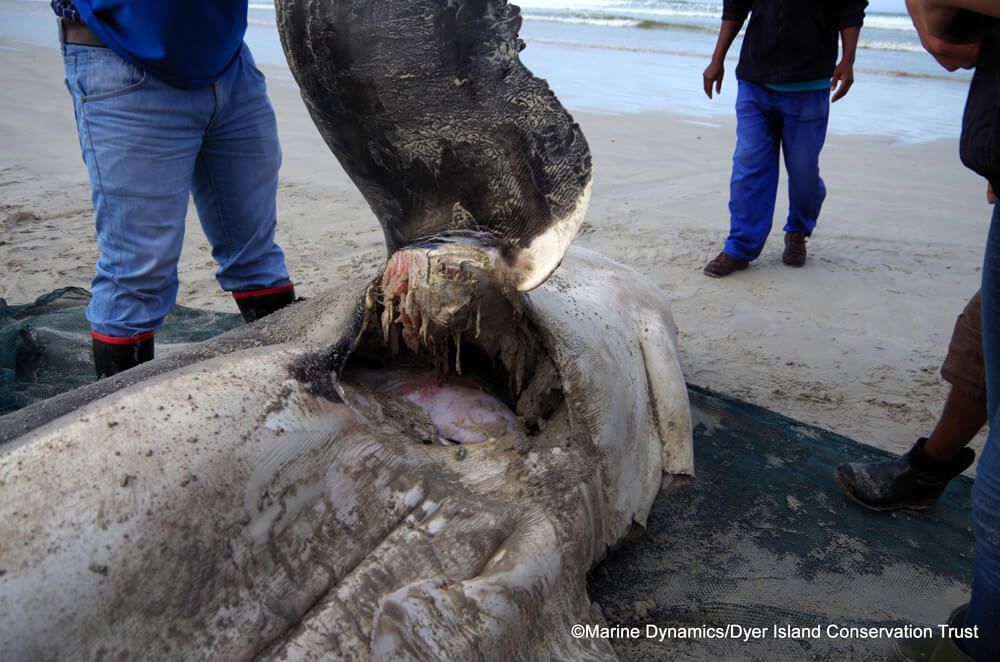
Between 3 – 7 May, the discovery of three great white shark carcasses washed up in Gansbaai and Struisbaai, along the western coast of South Africa, indicates that the great white sharks were killed by orcas (killer whales).
A report on the website of Marine Dynamics, a Gansbaai-based cage diving operation committed to shark research and conservation, states that on 3 May, the ‘fifth and largest shark carcass to wash up since 2012’ was discovered on a nearby beach, a female of 4.9m in length, with an estimated weight of 1,110kgs. The animal had been recorded in the area in June of 2016, and further afield in Mossel Bay between August and December.
Previously, on 8 February this year, another carcass had been found and as a result, the cage diving boats ‘struggled to see any sharks for two weeks’, something repeated in the wake of the 3 May finding.

Two more shark carcasses were discovered on the 4 and 7 May, a 3.4m long male and 4.5m long male respectively. In all three cases, the sharks were found with similar injuries, leading to speculation that the fatalities were the result of attacks by orcas, which have been sighted in the region since January of this year.
All three of the sharks were found to have had their squalene-rich livers removed, with one also missing its heart.
‘These observations are unprecedented’ said Alison Towner, a marine biologist with the Dyer Island Conservation Trust, closely affiliated with Marine Dynamics. ‘We know from photo ID, genetic and tracking studies that this population of sharks is open and transient. We have identified and matched each of the three dead white sharks in our database but the fact is from now on this is a grey area and we don’t really know how long the sharks will stay away from the area as a result of predation pressure.’
Although it was noted that shark carcasses may be found without their livers for other reasons – such as loss of the organ after a boat strike, for example – the ‘surgical precision’ of the injuries caused scientists to speculate that the sharks had been deliberately targeted by the orcas that have been sighted in the area, confirmed on 11 May after autopsies had been carried out.

‘The carcasses of all three white sharks had gaping wounds and their livers were removed,’ said Alison Towner via e-mail. ‘We also found tooth impressions matched to orca on their pectoral fins so the evidence was pretty compelling.
‘The pattern of injuries ‘led to the conclusion by all the scientists on site that orcas were responsible for the three white shark deaths,’ continued Towner, adding ‘Very similar injuries had occurred on seven-gilll sharks in Cape Town, [for] which orcas were also responsible.’
Orcas have been known to predate great white sharks but observations of the behaviour are scarce, and this is the first time that the dead sharks have washed ashore, allowing for a more detailed investigation into the aftermath.
‘Obviously, this is a very sad time for us all, nature can be so cruel and the dexterity these enormous animals are capable of is mind blowing,’ said Towner.
Great whites are fairly common in the waters off the western coast of South Africa, however, worldwide their population is dwindling and they are currently listed as ‘vulnerable’ by the IUCN. The impact of the displacement of the great whites from the area by the orcas is yet to be determined, however, the events of recent weeks allow for a fascinating opportunity to research the interaction between two of the ocean’s top predatory species.


